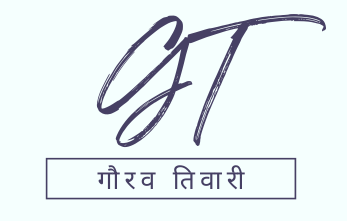RBI has recently announced deferment option to financial institutions for 3months to fight the challenges arising due to the pandemic (Covid 19). This announcement is a welcome step to fight the sudden financial uncertainties faced by retail borrowers. While many people will grab this opportunity due to financial problems it has also increased confusion amongst those who have not understood it well.
So I would try to explain the various aspects of the loan deferment announced alongwith an excel sheet where you can calculate the impact of using the deferment option
What is the option?
RBI has permitted all the financial institutions to allow a moratorium of three months on payment of instalments in respect of all retail term loans outstanding as on March 1, 2020. This means if you have taken a term loan from any lending institution, be it a regional rural bank, small finance bank and local area bank, a co-operative bank, all-India financial institutions, and NBFC (including a housing finance companies like HDFC), you can defer EMI payments for three months (March 20 to May 20).
Please understand that this is an option for the financial institutions and not a compulsory order. So your bank can refuse to defer your loans and demand regular payments for your loan.
What type of loan are covered (Is credit cards included)?
The announcement covers all the term loans like home loans, automobile loans, personal loans, farm loans, and crop loans. The announcement also includes other loans/revolving facility like credit card.
The loan deferment includes principal and interest payment for all the term loans and credit card outstanding.
Is it a loan waiver or loan deferment?
This is only a deferment option and not a waiver. In simple terms if you don’t pay your loan for 2 months your loan tenure will be extended by 2 months. You will have to pay the interest amount for the deferment period also along with the original payment schedule. Your loan EMI has not been waived off and only deferred if needed.
Which loans to defer(or not) and what will be the interest rate?
The interest rate on deferred payments will most probably be the same as your ongoing rate of the loan. It means that deferring a credit card payment will attract 36-42% interest rates while a housing loan will attract 8-10% interest rates.
So even though credit cards are also included in this option you should definitely not use it for regular payments of credit cards. A term loan on credit card carries 12%-18% interest hence even they should be avoided.
Housing loans are the best loans to be utilised in this announcement (if needed) as they are typically the biggest loans with low interest rates (<10%) and a long tenure. Any other loan should also be judged on similar parameters.
Will your loan EMI increase after deferment option?
Yes most likely. If you use the deferment option the interest amount accumulated on the deferred months will have to be adjusted. Which means you will have to pay more when your regular repayment starts. So either your accumulated interest will have to paid in one go or it will be distributed along the remaining tenure of the loan.
I have prepared a sheet to calculate the impact of using the deferment option. Please input your loan amount, tenure and interest rate to check the impact and your revised schedule.
Ex: If you have a loan of 3,00,000 at 12% interest and 18 months remaining the impact will be as follows.
| Deferment options | |||
| Current schedule (to be input) | Paid in March but not in April and May | No payment from March to May | |
| Loan outstanding on 1st March | 3,00,000 | 3,00,000 | 3,00,000 |
| Remaining tenure in months | 18 | 18 | 18 |
| Interest rate | 12% | 12% | 12% |
| Last EMI date | Sep-2021 | Nov-2021 | Dec-2021 |
| Current EMI | ₹ 18,295 | ₹ 18,295 | ₹ 18,295 |
| Revised EMI | ₹ 18,295 | ₹ 18,662 | ₹ 18,849 |
| Total amount paid | 3,29,303 | 3,35,554 | 3,39,281 |
Do you have to inform the banks?
Yes you have to. While some banks like SBI have automatically deferred the loans every bank will have its own policy. Its best to check with your bank/financial institutions and inform them in writing.
The bank may ask you the reason for deferment and deny the option to you. So take your documents or any other supporting evidence to show why you need deferment before meeting them.
What if I paid/not paid in March and what happens to my credit score?
Since the announcement came in the last week of March and applies retrospectively for all loans outstanding on 1st March 2020 many people would have paid the installment for March. If you have paid your installment for March then you need to discuss with your bank. They may be able to adjust this amount for future payments along-with deferment for April and May.
If you have defaulted on your March installment for some reason you should immediately contact your bank/lender. You can get your loan adjusted retrospectively for March 2020 and escape being reported to credit bureaus.
Your credit score and credit history will not be impacted if you choose this option but continuing regular payment may boost your credit score. So this option should be used only if you are facing huge uncertainty.
Conclusion
The loan deferment option is a good option for those who are facing huge financial uncertainty. For all those who can repay their loans comfortably should continue with their regular schedules.
PS: This post is curtsy my good friend Abhishek. You can follow him on twitter @bhartiya_abhi
PS2: This is the link to his medium blog.

